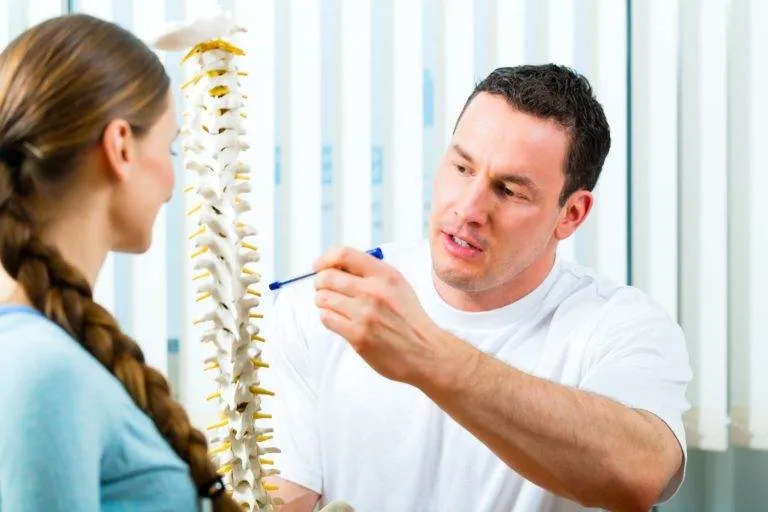What is Spinal Surgery?
Spinal surgery is a medical procedure aimed at correcting spinal problems, often involving significant structural alterations to the spine. Common types of spinal surgery include spinal fusion, discectomy, laminectomy, and artificial disk replacement. These surgeries are generally considered when conservative treatments such as physical therapy, medications, and lifestyle changes have failed to relieve severe and chronic back pain or spinal conditions.
The Risks of Spinal Surgery
While spinal surgery can be a lifeline for some, it comes with substantial risks and is not a guaranteed solution. Here are some critical factors to consider:
- Surgical Complications: As with any major surgery, spinal surgery carries risks such as infection, bleeding, blood clots, and adverse reactions to anesthesia.
- Nerve Damage: The spine houses the spinal cord and a network of nerves. Any surgery in this area poses a risk of nerve damage, which can lead to numbness, weakness, or even paralysis.
- Failed Back Surgery Syndrome (FBSS): This term refers to persistent pain following spinal surgery. The success rate of spinal surgeries varies, and many patients do not experience the desired relief from their symptoms.
- Long Recovery Time: Recovery from spinal surgery can be lengthy and demanding, often requiring months of rehabilitation.
- Potential for Additional Surgeries: Some patients may need further surgeries to correct problems that arise or to address the initial issue that was not successfully treated.
Alternatives to Spinal Fusion Surgery: Non-Surgical Spinal Decompression
Given the risks and potential complications of spinal surgery, exploring non-surgical alternatives can be a prudent approach. One such alternative is Non-Surgical Spinal Decompression.
What is Non-Surgical Spinal Decompression?
Non-Surgical Spinal Decompression is a treatment method designed to relieve pressure on the spinal discs and nerves. This technique uses a specialized traction table or a motorized device to gently stretch the spine. The goal is to create negative pressure within the spinal discs, promoting the retraction of bulging or herniated discs and enhancing the flow of oxygen, water, and nutrient-rich fluids into the discs to aid healing.
How Non-Surgical Spinal Decompression Works
During a session, the patient is fitted with a harness around their pelvis and another around their trunk. They lie on a table, and the device gently stretches the spine. Each session typically lasts about 30 to 45 minutes, and a course of treatment usually involves multiple sessions over several weeks.
The Effectiveness of Non-Surgical Spinal Decompression
Research and patient testimonials suggest that Non-Surgical Spinal Decompression can be an effective treatment for various conditions, including:
- Herniated or Bulging Discs: Studies have shown a reduction in disc herniation size and relief of associated symptoms.
- Degenerative Disc Disease: Patients often experience a decrease in pain and improvement in function.
- Sciatica: Many individuals report significant relief from sciatic nerve pain following treatment.
- Chronic Back and Neck Pain: Regular decompression sessions have been beneficial for ongoing pain management.
Research and Case Studies
- A 2016 study published in the “Journal of Physical Therapy Science” found that spinal decompression therapy significantly reduced pain and improved functional outcomes in patients with chronic low back pain.
- Another study published in the “American Journal of Pain Management” reported an 86% success rate in treating herniated and degenerative disc disease with spinal decompression therapy.
Why Choose DC Physiotherapy in Dublin?
At DC Physiotherapy in Dublin, we specialize in Non-Surgical Spinal Decompression, providing a non-invasive and evidence-based approach to treating back and neck pain. Our experienced physiotherapists are dedicated to delivering personalized care tailored to each patient’s unique condition and needs.
Benefits of Choosing DC Physiotherapy
- Experienced Professionals: Our team consists of highly trained and experienced physiotherapists who stay updated with the latest advancements in spinal care.
- Customized Treatment Plans: We offer personalized treatment plans that focus on the individual needs of each patient, ensuring the best possible outcomes.
- State-of-the-Art Equipment: We use the latest spinal decompression technology to provide effective and comfortable treatments.
Conclusion
While spinal surgery can be necessary for some severe cases, it carries significant risks and is not always a guaranteed solution. Non-Surgical Spinal Decompression offers a promising alternative for many individuals suffering from back and neck pain. With its non-invasive nature and high success rate, it is worth considering before opting for surgery. At DC Physiotherapy in Dublin, we are committed to helping you achieve pain relief and improve your quality of life through safe and effective non-surgical treatments.
For more information or to book a consultation, visit our website or contact us today. Take the first step towards a pain-free life without the risks of spinal surgery.


